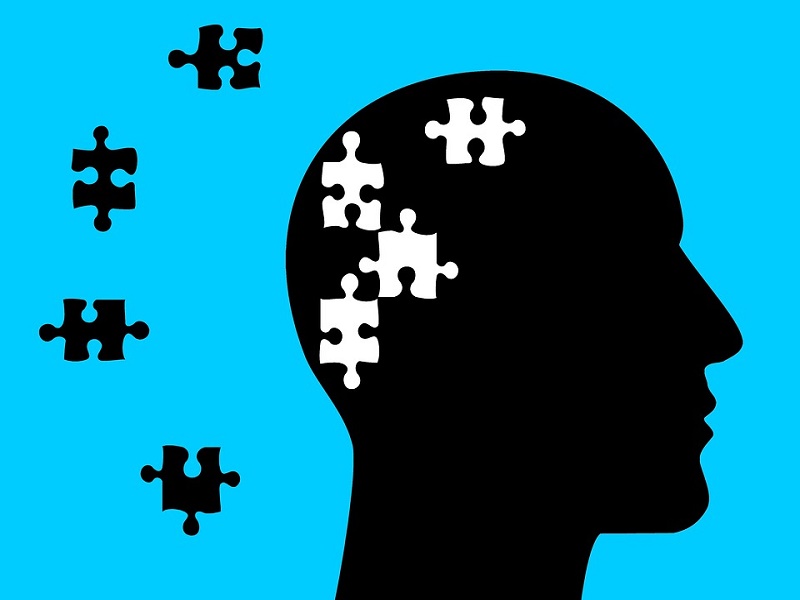In psychology it is very easy to get to confuse concepts, since often the categories used to classify mental phenomena have fuzzy limits. In addition, if you do not have much training in this field of science, it is easy to be left with doubts about what a definition referring to patterns of behavior means, something abstract.
In this article we will see what are the differences between bipolarity, schizophrenia and dissociative personality (or dissociative personality disorder), words that do not mean the same thing although they make reference to a kind of division between the psychological elements of a person.
Definition of each psychological concept
To understand how we can distinguish between these concepts used in clinical psychology and psychiatry, we must first have a definition (even if basic) about these terms. Let’s go to it.
What is bipolarity and bipolar disorder?
Bipolarity is a broad and unofficial concept that refers to bipolar disorder , a diagnostic label that is official when it appears in the main mental health diagnostic manuals.
By way of summary, we can say that bipolar disorder is a mood disorder in which without the person intends and can not control it happen stages of depression, on the one hand, and stages of mania in which the state of Mood rises a lot and becomes expansive .
Although there are different types of bipolar disorder, the most “pure” of this refers to what happens to a person who for several days in a row is deeply unmotivated, very sad and is even unable to feel pleasure, and then, Suddenly, happens to be several days in a row feeling a kind of intense euphoria and beliefs that you can achieve any goal (almost literally, and with all the dangers that this implies).
Bipolar disorder is a serious alteration of mental health in which there is a high risk of suicide attempts or exposure to very dangerous situations, and often the drastic changes in mood can appear along with distortions in perception of things, such as delusions and even hallucinations.
What is schizophrenia?
Schizophrenia is a clinical concept linked to serious alterations of the most basic mental processes, and is related to psychotic symptoms characterized by a serious alteration of perception and the performance of anomalous behaviors that often involve exposing oneself to dangers.
The ways in which schizophrenia is expressed are so varied that it has even been debated whether it is really a single clinical entity or several with little relation to each other in terms of their causes.
For example, in some cases delusions and hallucinations appear along with an inability to communicate in an organized manner, other times the psychotic symptoms of perception combine with catatonic stupor and loss of consciousness, and in many cases all this is combined with a strange way of expressing emotions (sometimes it seems that you do not have emotions, sometimes the emotions do not correspond to what is happening).
What is the dissociative personality?
The dissociative personality refers to what is known as dissociative identity disorder, formerly known as multiple personality disorder .
It is a diagnostic category that causes a lot of controversy because there are very few documented cases about it and consequently it has not been very studied, and its symptoms have not been described too consistently.
In general terms, dissociative identity disorder is associated with symptoms such as the inability to remember certain experiences at certain times but not others , the sense of decomposition of one’s personality and the flow of time.
In addition, dissociative identity disorder usually appears in people who have gone through traumatic experiences, which has fueled the idea that it is part of a way of dealing with memories that can not be accepted or experienced without suffering great stress. But this is just a hypothesis.
Differences between schizophrenia, bipolarity and dissociative personality
With what we have seen so far, we can begin to understand what are the differences between dissociative personality, schizophrenia and bipolar disorder.
1. Bipolar disorder is based on emotions
Although bipolar disorder can go hand in hand with hallucinations and delusions, what characterizes it are the alternations between very extreme moods , and that is why it is part of the category of mood disorders.
On the other hand, in most cases people with bipolar disorder do not have problems to communicate consistently (although sometimes they can choose not to speak due to the lack of motivation and energy characteristic of the depressive phase).
2. In the dissociative identity the key is memory
In the definitions of dissociative identity disorder, alterations in the experiementation of memories are the central element.
This means that in most cases an inability to remember events is described, and sometimes even reference is made to a “compartmentalized” memory , as if in one body there were several people capable of accessing memories to which nobody more you can access.
Of course, in reality this absolute division between remembered contents does not exist as such, and is only apparent.
3. Schizophrenia is not limited to emotions or memory
Another difference between schizophrenia, bipolar disorder and dissociative identity disorder is that the former has a much larger variety of symptom types that go beyond the emotional and memory blocks.
4. In each case the “division” in psychological processes is different
In these after concepts appears the idea that there is a division between psychological processes.
In bipolar disorder, this division occurs with the qualitative change from one emotional state to another .
In the dissociative identity, the cambis occur when memories become blocked and when others become accessible.
And in schizophrenia, it seems that the psychological processes themselves are those that are separated from each other, and not their contents : the emotional part sometimes does not correspond to the processes of perception of the environment, the latter do not correspond to the functioning of the senses, etc.
On the other hand, it is not typical of schizophrenia to go through stages in which symptoms appear together for several days in a row and then move on to another phase in which another group of totally different symptoms arise, as happens with bipolar disorder.








